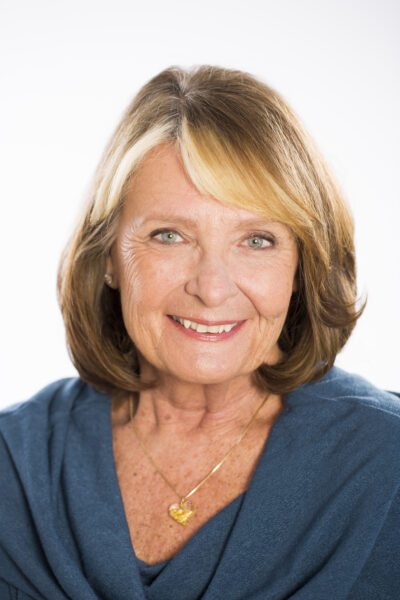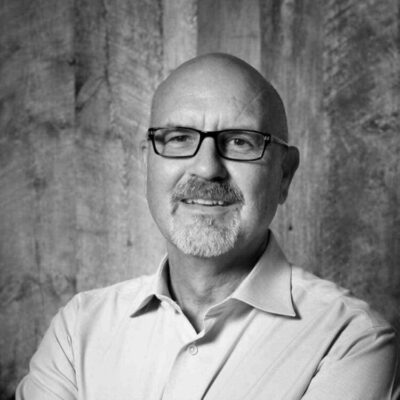Insight
Braver Collective Founder, Scott Dille, in Conversation with Donna Jenson
Scott Dille, Founder and Executive Director of Braver Collective, sat down with Donna Jenson, founder of Time to Tell, to discuss inspiration, excitement, and hopes for the future of the collective.
Donna Jenson:
Scott Dille and I started connecting in the spring of 2021. We had mutual friends in the movement to end sexual abuse and he reached out to me to possibly collaborate on the project he was building for young survivors. Having done several decades of work in the area through my project, Time to Tell, I was immediately interested in his vision. The more I got to know this smart and gentle man, the more I wanted to join him and the great team he was building, in offering healing opportunities on the Braver Collective platform. This all gives me great pleasure to interview Scott here so others can get to know him, too.
Hello Scott, why don't we just get started. Can you tell us a little bit about when and where you grew up?
Scott Dille:
Hi Donna, it’s great to be here with you. Thank you.
My father was in the Air Force, so we grew up in a lot of different places. I think we lived in 5 different places before I was 5 [years old], and then we moved to California. We lived there until my 7th grade year and then we moved to a small town in Missouri where my dad had grown up.
Donna:
What did you like to do when you were a kid?
Scott:
I really loved being outside. When we lived in California we did a lot of camping in the mountains. So I fell in love with the mountains early, and I still feel the same way. We actually live in the mountains now, in Colorado. Just being outside in nature for me, is a place that when I was young, felt safe. It was safe when very little else felt that way, and it was just a place where I could be myself.
Donna:
Scott, what would you like people to know about you as a survivor?
Scott:
Well, I've been a survivor for as long as I can remember. The sexual abuse in our house began when I was very young, and continued through my childhood. So my early days, my childhood days, were really marked with a lot of chaos, with a lot of fear and unpredictability.
In hindsight, I now know that my nervous system rewired—so I was just hyper vigilant, you know, from the time I woke up until the time I went to sleep. And, like a lot of survivors, I began to feel like there was something wrong with me, to feel shame.
Donna:
Can you tell me the story of how and where you came up with the vision for what would later become Braver Collective?
Scott:
Sure. It's been a while, but it just feels like it was just the other day. I was watching television in January of 2018, and found myself watching the U.S.A. Olympic gymnasts testify against Dr. Larry Nassar in his sentencing hearing. And Larry Nassar, as you know, is a very evil person who'd been on the medical team of the gymnasts for many years [and abused many many people]. Ultimately over a hundred of his survivors testified in that hearing.
And I don't know, Donna, it was just something about the power of the survivors, in their voice—the strength of their voice, and the community that I could see that surrounded them with compassion and strength—something kind of jarred me out of the mode I've been in. For my whole life I was really focused on my own healing, and [this moment] helped me start to see how many of us have been impacted [by sexual trauma] and how significantly we've been impacted.
Donna:
Can you tell us what you're most proud of about Braver Collective?
Scott:
I think it goes back to how we formed Braver. We knew from the beginning that the survivor voice was the only voice that we would consider to be trustworthy, in terms of understanding what happened to us as trauma survivors and what healing might look like. So from the beginning, working with some really amazing designers, we went out and started talking to survivor healing experts, nonprofit leaders like yourself, and survivors. [We began by] just showing a bunch of different ideas and asking for their guidance in terms of where we might focus our efforts. [Our initial goal was to] create the potential to have significant impact in support of survivor healing, while knowing how few resources are present for survivors.
“Everything you see on the site, everything about our nonprofit, has been co-designed with survivors.”
From the beginning they [survivors] pointed us toward the space that has now become Braver Collective. We continued to listen carefully to survivors through the research and co-design process. We worked with some really incredible designers; Mary Foyder Design and Field of Practice, and before that Firebelly Design, and co-designed everything that you see with a group of young adult survivors [between ages 18 - 30]. So really everything you see on the site, everything about our nonprofit, has been co-designed with survivors. Everything you see that is there, is there because survivors said that it is important to support their healing. I'm very, very proud of that.
I'm proud of the fact that the site easily connects with survivors and survivor healing experts—and other resources that, prior to this, a survivor would have to search [for] and try to connect all those dots on their own. We try to make that very very easy.
And then finally, just the fact that it's an actual community, a real community of people who care about each other. It's a community of survivors who've come together to help each other heal. It's a place where you can read stories of other survivors, and know you're not alone.
“It’s a place where you can tell your story and what you've learned, and know that there’s somebody who understands you and cares about you.”
It's a place where ideally you can find the inspiration and the information you need, and feel that sense of support. So you can take whatever your own next, best step to heal might be.
Donna:
It's all very exciting. So, as everything that's been built starts to unfold, what's your hope and vision for the future?
Scott:
Well, my hope is that the community continues to grow and expand, because again, there just simply aren't enough places to go to help each other heal.
I hope that through the feedback from the survivors and supporters, and others who engage in this community, that we'll be able to continue to improve what we do and add more value back into this community. We'll have a lot of feedback channels that are set up and we have a group of young, adult survivors, who are going to help us prioritize [our response to] that feedback. So when we make decisions, say a year from now, on how to improve the site—we can be confident that we'll be better a year from now than we are today (and a year after that, better than that year before, and so on). I'm most excited about that.
And then [my hope is that] each survivor finds a way to claim their voice as a survivor. I think back about how difficult it was for me to tell my story outside of my little family and friends. I didn't share my story until I was 59 years old and I think it's for sure one of the most difficult things I've ever done. But there's been so much healing since then, in this community, that I know would not have happened any other way.
And I hope that for all survivors that this is an invitation for all of us to come into this community, and to contribute what each one of us has to contribute from our lived experience and our learnings and to help each other.
So I think the invitation, for you and for me and for all of us, is to add our voice to the community. To know that when you speak or share, you'll be understood. That there will be people who care for you, and there'll be people who are [also] sharing their stories so you can understand what happened and what healing might look like—and ultimately we can come together to form this community to help each other heal. That's my greatest hope.


